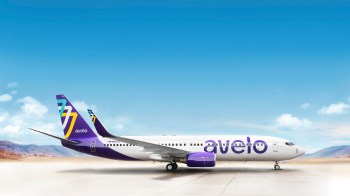Merged airline would be world’s largest
Share Now on:
Merged airline would be world’s largest
TEXT OF STORY
Renita Jablonski: Another thing moving higher — the price of oil.
This morning, another record — almost $14 a barrel. Growing fuel costs are one reason why Delta and Northwest finally decided last night to go for a merger. Unions, regulators, and Congress all need to weigh in on this now. But we couldn’t help wondering, if the deal does goes through, what does it mean for travelers? Jeremy Hobson reports.
Jeremy Hobson: When Delta CEO Richard Anderson announced the merger with Northwest, he laid out the benefits.
Richard Anderson: It will provide a strong capital base, improve customer service, stable jobs and returns for shareholders.
Notice what he didn’t say: lower fares. That’s because if anything, says Seth Kaplan of Airline Weekly, fares should rise with less competition. Especially in some markets.
Seth Kaplan: The areas where fares would be most likely to go up are actually certain smaller and mid-size places where Delta and Northwest together provide the most service. A place like, let’s say, Lexington, Kentucky.
What could make fares go up across the board, he says, is further consolidation in the industry. After the news about Delta and Northwest, a deal between United and Continental could be imminent. And others may need to follow to stay competitive.
In Washington, I’m Jeremy Hobson for Marketplace.
There’s a lot happening in the world. Through it all, Marketplace is here for you.
You rely on Marketplace to break down the world’s events and tell you how it affects you in a fact-based, approachable way. We rely on your financial support to keep making that possible.
Your donation today powers the independent journalism that you rely on. For just $5/month, you can help sustain Marketplace so we can keep reporting on the things that matter to you.


















